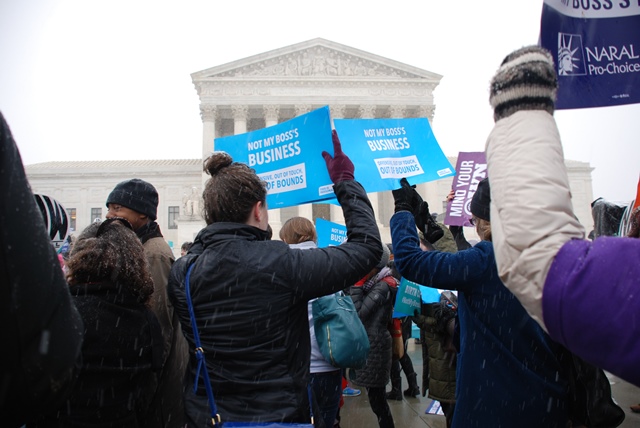Make your tax-deductible gift by December 31—every gift matched, up to $150,000!
In this moment, the future of our rights, our bodily autonomy, our freedom feels uncertain. What we do next will make a difference for decades to come.
Make your tax-deductible gift by December 31—every gift matched, up to $150,000!
In this moment, the future of our rights, our bodily autonomy, our freedom feels uncertain. What we do next will make a difference for decades to come.
Double your impact in the fight to defend and restore abortion rights and access, preserve access to affordable child care, secure equality in the workplace and in schools, and so much more. Make your matched year-end gift right now.


On Thursday, the Florida Supreme Court continued to block a 2015 law that created medically unnecessary delays before a woman could obtain an abortion. If enforced, the law would require a woman to wait at least 24 hours and make at least one medically unnecessary trip to the clinic before she could have an abortion. However, because the Court found that the law is likely unconstitutional, it is blocked it from going into effect while the litigation continues. According to the ruling, “Through the Mandatory Delay Law, the state impermissibly interferes with women’s fundamental right of privacy.”
This is an important victory for women in Florida. Mandatory delays like these merely make it harder for a woman to obtain an abortion. They force women to make additional unnecessary trips to the clinic—increasing travel time and costs, time off from work or school, and child care expenses. Many women—particularly women of color, women in rural areas, and women in abusive relationship—already have a hard time accessing health care. Politicians shouldn’t add additional barriers.
As Nancy Abudu, legal director for the ACLU of Florida said, “This law had one purpose: to limit a woman’s access to her constitutionally guaranteed medical care.” Thankfully, the Florida Supreme Court recognized the law for what it was—a medically, unnecessary restriction on a safe, constitutionally protected medical procedure. Although this isn’t the final word—the ruling puts back in place a temporary injunction until the Supreme Court decides whether to take up the case—the Court’s Thursday ruling sends a clear signal. Politicians shouldn’t interfere with a woman’s personal decisions about her health and her family.



